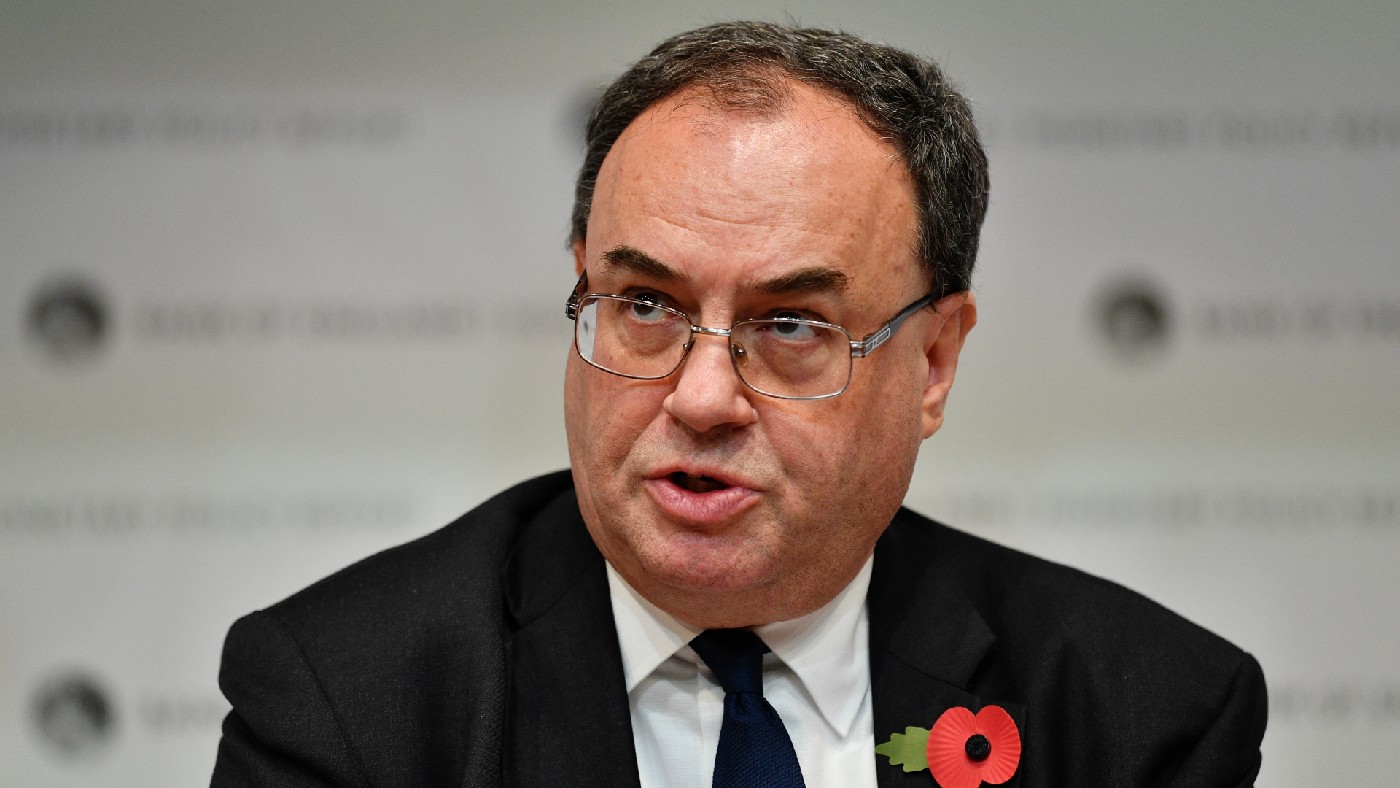Is the Bank of England ‘bottling it’ over interest rates?
The conundrum of when to raise interest rates is testing the mettle of central bankers

A free daily email with the biggest news stories of the day – and the best features from TheWeek.com
You are now subscribed
Your newsletter sign-up was successful
No central banker likes to be put on the spot about interest rate decisions – let alone be accused of “bottling it”. But that, said Phillip Inman in The Guardian, is the criticism being levelled at Bank of England Governor Andrew Bailey and his Monetary Policy Committee (MPC). Having signalled the need to tackle inflation with the first post-pandemic hike, they failed to make the move – prompting tumult in the bond markets and a 2% fall in the pound.
On the eve of the meeting last Thursday, investors had priced in “a full 0.15 percentage point increase”, taking the benchmark rate to 0.25%, said Moyeen Islam of Barclays Capital Securities in the FT. “The market’s surprise” when it didn’t turn up was evident in the “gyrations” of “policy-sensitive” five-year gilt yields, which experienced “the largest intra-day move” since the EU referendum. Traders were left reflecting that the Bank would be “smart to revisit its communication strategy”.
The Bank “blinked”, said Patrick Hosking in The Times. Despite “reams of evidence that inflation is on the rise and going to get worse” (the MPC raised its forecast to 5% in early 2022), it “couldn’t bring itself to pull the trigger”. Sure, there are reasons to delay: growth is slowing, cost pressures may indeed prove temporary, and there is still a risk of an “adverse” Covid development over the winter. But a small rate rise “would have sent a crucial signal that the Bank is serious” about containing inflation. Its credibility “is now on the line”.
The Week
Escape your echo chamber. Get the facts behind the news, plus analysis from multiple perspectives.

Sign up for The Week's Free Newsletters
From our morning news briefing to a weekly Good News Newsletter, get the best of The Week delivered directly to your inbox.
From our morning news briefing to a weekly Good News Newsletter, get the best of The Week delivered directly to your inbox.
The Bank appears to have “failed a test of political independence on interest rates”, said Ben Wright in The Daily Telegraph. At the very least, it looks cack-handed when compared with the US Fed. There was no market “tantrum” following last week’s announcement that the Fed would start reducing bond purchases. Chairman Jerome Powell made the move “without scaring the horses by being extremely transparent and consistent about his intentions”. What a contrast with Threadneedle Street.
For years, the world’s major central banks have moved in lockstep, said the FT. But “the pace of tightening” now splits opinion. While both the Fed and the BoE are signalling that “rates are likely to rise soon” (and the central banks of Canada and Australia have taken hawkish positions), the European Central Bank under Christine Lagarde is “resisting any shift in policy”.
Central banks face an “extraordinarily difficult task”, said The Economist, as they attempt to “normalise” monetary policy “amid sky-high asset prices, heavy debt levels and above-target inflation”. “Don’t rule out a bigger bond brawl.”
A free daily email with the biggest news stories of the day – and the best features from TheWeek.com
-
 The ‘ravenous’ demand for Cornish minerals
The ‘ravenous’ demand for Cornish mineralsUnder the Radar Growing need for critical minerals to power tech has intensified ‘appetite’ for lithium, which could be a ‘huge boon’ for local economy
-
 Why are election experts taking Trump’s midterm threats seriously?
Why are election experts taking Trump’s midterm threats seriously?IN THE SPOTLIGHT As the president muses about polling place deployments and a centralized electoral system aimed at one-party control, lawmakers are taking this administration at its word
-
 ‘Restaurateurs have become millionaires’
‘Restaurateurs have become millionaires’Instant Opinion Opinion, comment and editorials of the day
-
 Health insurance: Premiums soar as ACA subsidies end
Health insurance: Premiums soar as ACA subsidies endFeature 1.4 million people have dropped coverage
-
 Anthropic: AI triggers the ‘SaaSpocalypse’
Anthropic: AI triggers the ‘SaaSpocalypse’Feature A grim reaper for software services?
-
 Currencies: Why Trump wants a weak dollar
Currencies: Why Trump wants a weak dollarFeature The dollar has fallen 12% since Trump took office
-
 Elon Musk’s starry mega-merger
Elon Musk’s starry mega-mergerTalking Point SpaceX founder is promising investors a rocket trip to the future – and a sprawling conglomerate to boot
-
 TikTok: New owners, same risks
TikTok: New owners, same risksFeature What are Larry Ellison’s plans for TikTok US?
-
 Will SpaceX, OpenAI and Anthropic make 2026 the year of mega tech listings?
Will SpaceX, OpenAI and Anthropic make 2026 the year of mega tech listings?In Depth SpaceX float may come as soon as this year, and would be the largest IPO in history
-
 Leadership: A conspicuous silence from CEOs
Leadership: A conspicuous silence from CEOsFeature CEOs were more vocal during Trump’s first term
-
 Ryanair/SpaceX: could Musk really buy the airline?
Ryanair/SpaceX: could Musk really buy the airline?Talking Point Irish budget carrier has become embroiled in unlikely feud with the world’s wealthiest man